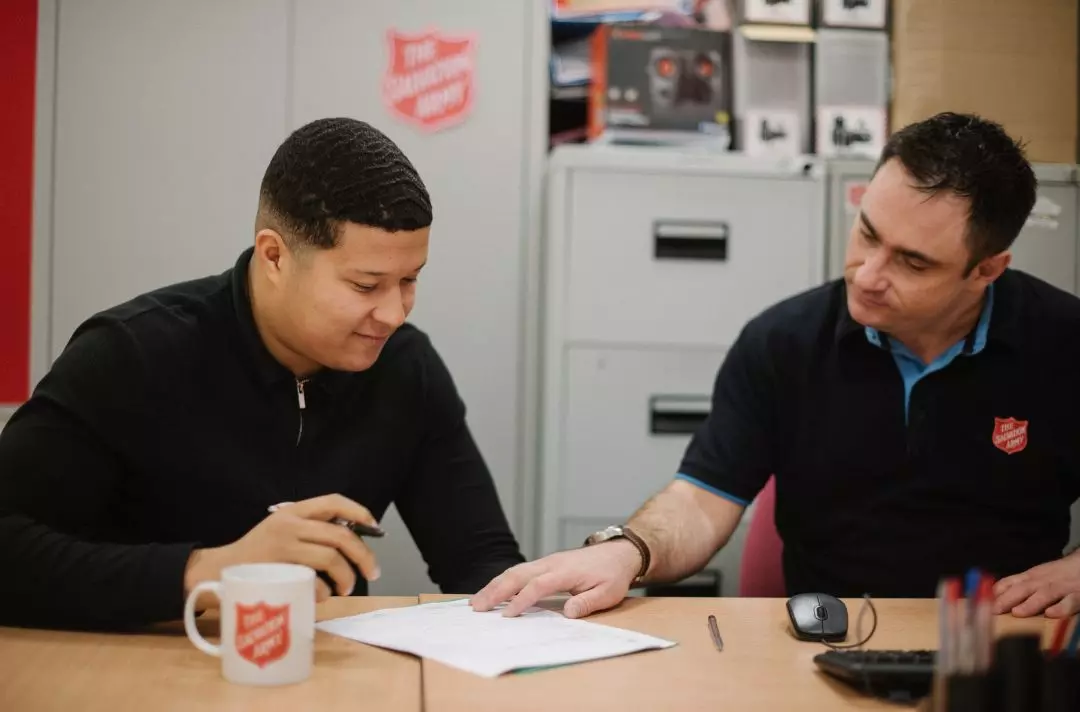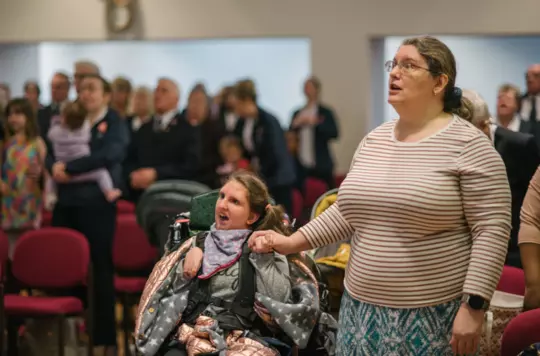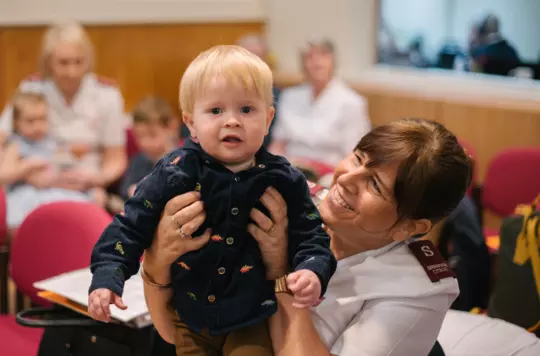31 August 2024
Mission priorities explained: Serve others without discrimination

Salvationist unpacks the serve others without discrimination mission priority in discussion with Assistant Secretary for Mission Mitch Menagh (THQ) .
Our intention as a territory is to love God and love others. How does serving others without discrimination fit in with that?
We’re called to love others. Our ministry is not just for me and you: it’s for others. It’s about seeing people’s lives transformed.
Why is serving others without discrimination one of our mission priorities?
William Booth once wrote a one-word telegram to officers: Others. It’s all too easy to say it, but by making this a mission priority, we’re committing to it. There’s an integrity to that: it’s not just what we say, but what we do.
The key words are ‘others’ and ‘without’. If we really believe the gospel is for the whosoever, we need to believe there is potential of transformation in everyone we meet. The person in the Lifehouse, the survivor of human trafficking, the resident in a care home – they all need to know Jesus.
But we cannot expect someone who’s been alcohol-dependent for years, for example, to suddenly stop drinking. Through our services and interventions, we can help people start to manage their lives better.
That’s when we can introduce them to Jesus. And we do this without discrimination. Discrimination cannot be pleasing to God. We should be a bridge not a barrier between someone and God. That isn’t always easy, but God equips us.
What is the biblical basis for serving others without discrimination?
Matthew 25:40: ‘Whatever you did for one of the least of these ... you did for me.’ Someone might be perceived as unimportant, but they’re not. We should try to see Jesus in others, and we should hope they see Jesus in us too. If someone’s hungry, we don’t just talk to them about Jesus: we show them Jesus.
Psalm 139:10: ‘Even there your hand will guide me’ (New Living Translation). Someone can hide themselves in alcohol or drugs, but even there God sees them.
Micah 6:8: ‘Act justly ... love mercy and ... walk humbly with your God.’ That’s what we should do, whether that’s through the Debt Advice Service or a school uniform exchange. We often think we know best, and that’s a bit of discrimination. We don’t always know what’s right for someone and people don’t want to be pitied. We shouldn’t be ‘doing to’ but ‘doing with’.
John 4:26. Matthew 8:1-4. Jesus helping the woman at the well and healing a man with leprosy remind us that sometimes we can turn others away from God’s Kingdom because of a discriminatory practice or view.
Discrimination can involve all kinds of things – race, sexuality, age – and preconceptions. If we see someone in the street or in prison, we might assume they’re a beggar or a bad person. Discrimination can even be assuming that someone who comes for a food parcel has gas and electric or a tin opener. It’s about looking beyond someone’s circumstances, embracing them and helping them.
Luke 19:1–10. The story of Zacchaeus is all about transformation. The crowds are outraged that Jesus would help this tax collector. Jesus is just ‘passing through’ (v1), but is he? He knew Zacchaeus’s name. Ministry is about being intentional.
What does serving others without discrimination look like in practice?
Taking away stigma. Someone comes to, say, a food bank with embarrassment. We need to get beyond that and build trust. It’s offering a hand up, not a handout.
Not condoning someone’s situation, but also not condemning them: accepting an individual and listening to their story. It’s being with people not to cast stones, but to journey with them.
Remembering that our services and interventions aren’t the end point: they’re the starting point to build relationships and invite people to things.
It’s good when corps connect with their local Army social services. It’s ultimately having a church without walls. What if every corps were a social centre and every social centre were seriously considered to be a church?
People can be saved in a Lifehouse, a care home, a safe house – it’s the same Jesus in all those places.
What’s the end goal?
We close down all our social services because society no longer has issues such as poverty. But that’s not going to happen overnight, so there’s still a need to provide quality and missional services.
We are first of all a Christian church: the goal is sharing the gospel and helping to transform lives, so that people leave our services with a better insight into life in all its fullness with Jesus – even if it hasn’t been reached fully, that they understand the possibility.
What’s the biggest challenge we face in this mission priority?
The Army can’t solve every social issue. We’ve got to cut our cloth accordingly and think carefully, strategically and missionally. We need to focus on what God requires of us.
What’s the most encouraging thing about this mission priority?
The range of activities and programmes we offer locally to get alongside people. And the quality of the staff who value working for The Salvation Army.
Discover more

Ensuring equality, diversity and inclusion are at the heart of everything we do.


